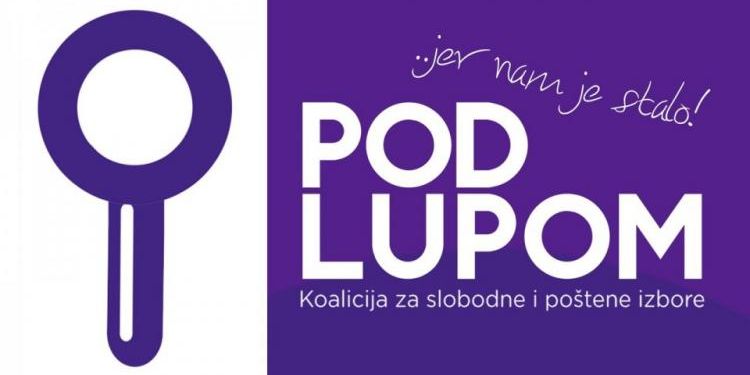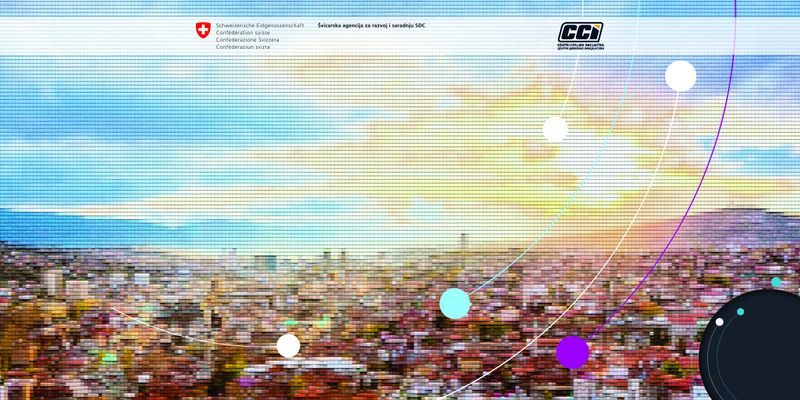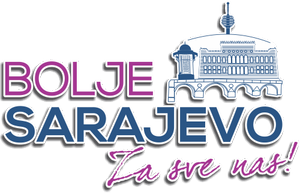Employment strategy adopted at the state level in Bosnia and Herzegovina. CCI started the campaign for adoption of this strategy in 2009. The problem of high unemployment rate was recognized as one of the most important in the country, especially taking into account that BIH is the only country in the region that did not have this strategic document adopted. Adoption of the employment strategy is one more indicator how the work of non-governmental sector can make pressure on the authorities to direct their activities toward solving specific problems of the citizens. These activities are implemented as part of the Civic Advocacy Partnership Program (CAPP) financially supported by USAID.
The new Law on Games of Chance ensures financing of the neediest population categories in BIH Federation. Within the project Games of Chance, a Part of the Solution and Not a Problem, CCI implemented various activities during the past two years, aimed at adopting better legal framework for games of chance. The new law that was adopted during June in the Parliament of the bigger BiH entity provides for approximately 50% of BIH Lottery profit to be allocated for financing humanitarian, social and health needs of BIH Federation citizens. These activities were financially supported by the Open Society Fund BIH.
The goal of the Project Games of Chance, Part of the Solution and Not a Problem is to, by redefining the status of the law on games of chance in BIH, within the social and NGO sector policies, ensure systemic solving of financing of social needs of the population, groups and organizations, as regular source for financing projects, programs and organizations with wide social benefit prefix. With the adoption of new legal solutions in BiH Federation stable financial income for some of the most important humanitarian organizations will be ensured like the Red Cross, Dobrotvor, Merhamet and Caritas. This also helps ensure continuous income for various financing, ranging from public kitchens, medical treatment of seriously ill children, protection of victims of abuse, pedophilia and begging, protection of victims of torture and violence, meeting the needs of disabled persons, fighting against drug addiction, support to innovations, amateur sport and civil society organizations. Additionally, the domestic legislation in that field has been significantly harmonized with the European norms.
The Law on Games of Chance in the Republic of Srpska partly deals with this problematic, so that a significant part of funds from games of chance is allocated for humanitarian and social activity. Unfortunately this is not the case in Brcko District.

The CCI campaign „We also want to go to Kindergartens“ has been started in Banja Luka with an aim to decrease the cost of children’s stay in Kindergartens, that is among the highest in BIH. Beside the cost there is a big problem presented by the capacity of existing Kindergartens, which does not satisfy the city needs, with the parents waiting for their children to be admitted to Kindergartens for as long as two years. CCI conducts this campaign in cooperation with association 4+ from Banja Luka, and with the financial help of European Commission and Open Society Fund of BIH, which are financing the project Local Administration for Quality of Citizens’ Life.
In a survey conducted within the project Local Administration for Quality of Citizens’ Life, the CCI found that the cost of children’s stay in Banja Luka Center for Pre-school Education is the highest compared to other 13 cities included in the project. It was additionally found that the capacity of existing Kindergartens does not satisfy the needs of Banja Luka citizens. These were the reasons for CCI to start the campaign in cooperation with Association 4+, with the main goal to:
- allocate subsidies from the city budget to decrease the cost of children’s stay in Kindergartens that is paid by the parents and define additional benefits for children from families with four or more children;
- systematically solve the number and capacity of Kindergartens in Banja Luka, through capital investments of the City;
- adopt the regulations at the Republic of Srpska level that would regulate private sector’s investments in this field.
CCI welcomes the swiftness of Banja Luka city administration which recognized the importance of solving this problem. The city will provide 220.000 KM to finance certain benefits for children’s stay in kindergarten from the 2010 city Budget. Besides, the price of kindergarten is lowered by 15 KM. Before the correction, the price was 180 KM. There are several benefits for families with more than one child (in kindergarten): e.g. price for one child is 115 KM, for the second one 99 KM, while the third one is free. For families with four children there are even more benefits.
The city administration adopted the expansion plan for Pre-school centres that will provide funds for opening of five new kindergartens in the next two years.
The survey showed something that was astonishingly absurd. Namely, it is very easy to establish a private college or a school in the Republic of Srpska, but not a Kindergarten!
By calling on the citizens to give the support to the campaign by signing the petition, CCI puts pressure on Banja Luka city administration and the Ministry of Governance and Local Self-Governance to finally start solving this big problem faced by all the parents of Banja Luka children.
www.vlastibih.com is a web page that has been providing information on the work of all BIH government institutions in the last four years. The content of this web page is based on the results of CCI’s four-year monitoring of work of the Council of Ministers, BIH Parliamentary Assembly, and of entity and cantonal governments and parliaments in BIH.
The web page contains a great deal of data on four-year work of all BIH authority institutions, as well as the data on work of each MP, minister and delegate separately. As anyone who has access to the Internet can get this data, we hope that making of the decision as to who to vote in the coming general elections in October will be made easier for voters. The website offers a great deal of information on the candidates from election lists, whose work has been analyzed and presented to the public. We hope that this information will contribute toward preventing re-election of those individuals who, in the past four years of their mandate, worked only in their own personal interest. These activities were implemented within the Civic Advocacy Partnership Program (CAPP) that is financially supported by the USAID.
A workshop on the subject responsibility forum took place in Srebrenica. Representatives of local communities from Srebrenica and Bratunac that participate in the project Sustainable Participation of Citizens in Decision-Making Processes in Srebrenica and Bratunac, enabled by the support of CARITAS Switzerland and Government of Lichtenstein, took part in this workshop.
The Workshop dealt with a topic which is a part of the preparation for holding direct citizens’ meetings with elected representatives of the two municipalities in LCs, with an aim to increase confidence between elected representatives and citizens, and increase transparency of the work of elected representatives. After presentation of the topic ²Responsibility Forum² OT members and Workshop participants adopted knowledge that will help them organize the Responsibility Forum, that is to say, check the readiness of elected representatives to be responsible towards voters – citizens, by presenting the results of their work and results of the implementation of the Work program during their term of office, with an accent on budgeting and solving the priority needs of citizens.
During July times for holding of ‘Responsibility Forum’ were already scheduled with mayors and other municipal officials. Forum organizers are local communities, with CCI acting as a support to those activities. The role of municipal officials is to inform citizens in LCs about the news in the work of Municipal Administration Service, led by them, as well as to give answers to their questions. Especially, the accent would be on the budgeting process, that is to say, familiarizing the citizens with the budget plan and realization in the previous period from the beginning of the year.
Organizing of the Responsibility Forum helps the elected authority representatives become and stay transparent in discharging their public offices. It is a way to improve communication and build partnership between authority bodies and citizens.

„Return the bottle and charge it“ is a name of a street activity by which CCI makes pressure on the Ministry of Environment of BiH Federation to finally adopt by-laws and enable systematic recycling of packaging waste. This action used by CCI to draw the attention of citizens of Sarajevo to the problem of systematic solving of packaging waste is a part of the campaign Clean the Waste which is part of the project „Civil Society and Citizens“, financially supported by the Embassy of Kingdom of Holland in BiH.

Campaign „Depoliticize Education“ has been initiated in Canton Sarajevo too, in order to win the citizens’ support through petition for support of the initiative of direct election of elementary schools principals by the parents and employees. This is a campaign of several years in which CCI has been advocating professionalization, democratization and depoliticization of education, and decreasing the influence of political parties on the education system. At the end of 2009, the CCI started an initiative in Canton Sarajevo for amendment of the law and introduction of direct election of school principals by the parents.
CCI has been working on reform of education for several years already, and one of the initiatives includes direct election of elementary schools principals by the parents and employees. This model has been in force for six years already in Tuzla Canton, and since the last year also in Bosnian-Podrinje Canton Gorazde.
In Sarajevo Canton there were problems with appointment of executive and school boards, as well as of directors of educational institutions. This is why CCI believes that bigger participation of parents would contribute toward solving of this problem and decreasing of political parties’ negative influence on educational process, the biggest victim of which is education itself, pupils and their parents. Exactly this was the motivation of the CCI when the campaign for Law amendments started, which was aimed at incorporating the new model of election of principals in the Law. Having in mind that declaration on the text of the Law, which should also contain this initiative in the Canton Sarajevo Government and Assembly, is expected in the following months, CCI intends to start a debate with wide support of the public and media and to help raising funds for financing the best solution of the law that will ensure depoliticization, professionalization and democratization of the education system.
Strategy for reform of the justice sector in BIH provides an excellent example of good cooperation between civil society organizations and BiH Ministry of Justice. CCI and other 4 non-governmental organizations joined the process of continuous monitoring and reporting on implementation of this important strategy, which aims at contributing toward building of independent and more efficient judicial system within BIH, a system that will be responsible to the citizens of this country. The project is financially supported by the UK Embassy in BIH.
Besides CCI, the project Monitoring and Evaluation of Implementation of Justice Sector Reform in BIH also includes Association for Democratic Changes – ADI; Helsinki Human Rights Committee; BiH Association Your Rights and Human Rights Office Tuzla. During the first half of 2010 cooperation of the authorities representatives in BIH with civil society organizations that are part of the project was very good. Government institutions are open for cooperation with civil society on monitoring and evaluation of justice sector reform. The challenges that the project participants were faced with were mainly related to data collecting process and analysis of certain information, and have to do with institutional challenges of the implementation itself of justice sector reform in BIH. It has been observed during the previous work that the process of preparation for justice sector reform is not adequately prepared. Responsible institutions started this large and important process for the whole country without serious preparation and in an improvised manner. This indicates that there is still a big room for improvement of cooperation and coordination between all authority institutions within the justice sector at the state, entity and cantonal levels, as well as in Brcko District.
To make this cooperation better it is necessary to make sure that strategic plans, annual work and budget programs are developed on time, that there is coordination between the institutional strategic plans and budgets as well as that the communication and cooperation between individual institutions of the justice sector in BIH is improved.



















